Photo Gallery 6
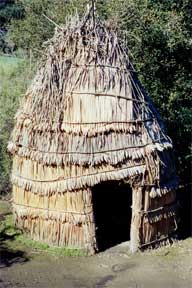
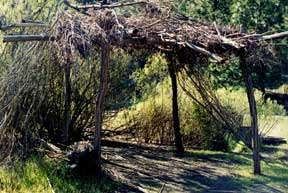
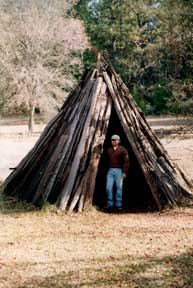
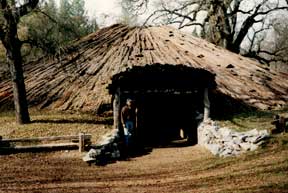

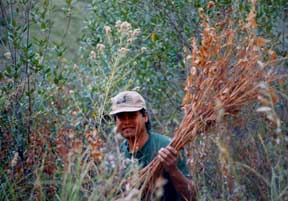
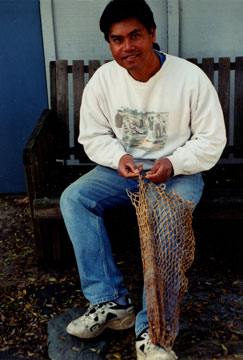


Two replicas of diigubuhu toys made out of tule. The original,
which resides at the Brooklyn Museum, was made by Susanna Graves (Pomo)
in 1906. Diigubuhu is the Eastern Pomo word for a water bird,
the American bittern.
When a predator approaches its nest, the least bittern stretches
its neck (which is colored like the surrounding withered reeds),
thrust its beak upward, and sways gently like reeds in the wind.
Also, the dark and light lines on bitterns help them to blend
in with vertical shadows cast by the vegetation they live in.
© D. Labiste 1998-2003 (1st photo only)
E-mail your comments to "Dino Labiste" at KahikoArts@yahoo.com
All photo rights reserved. No part, content or photo from this
webpage may be copied, transferred or reproduced without express written permission
from the photographer.
We hope the information on the PrimitiveWays website is both instructional and enjoyable. Understand that no warranty or guarantee is included. We expect adults to act responsibly and children to be supervised by a responsible adult. If you use the information on this site to create your own projects or if you try techniques described on PrimitiveWays, behave in accordance with applicable laws, and think about the sustainability of natural resources. Using tools or techniques described on PrimitiveWays can be dangerous with exposure to heavy, sharp or pointed objects, fire, stone tools and hazards present in outdoor settings. Without proper care and caution, or if done incorrectly, there is a risk of property damage, personal injury or even death. So, be advised: Anyone using any information provided on the PrimitiveWays website assumes responsibility for using proper care and caution to protect property, the life, health and safety of himself or herself and all others. He or she expressly assumes all risk of harm or damage to all persons or property proximately caused by the use of this information.
© PrimitiveWays 2016